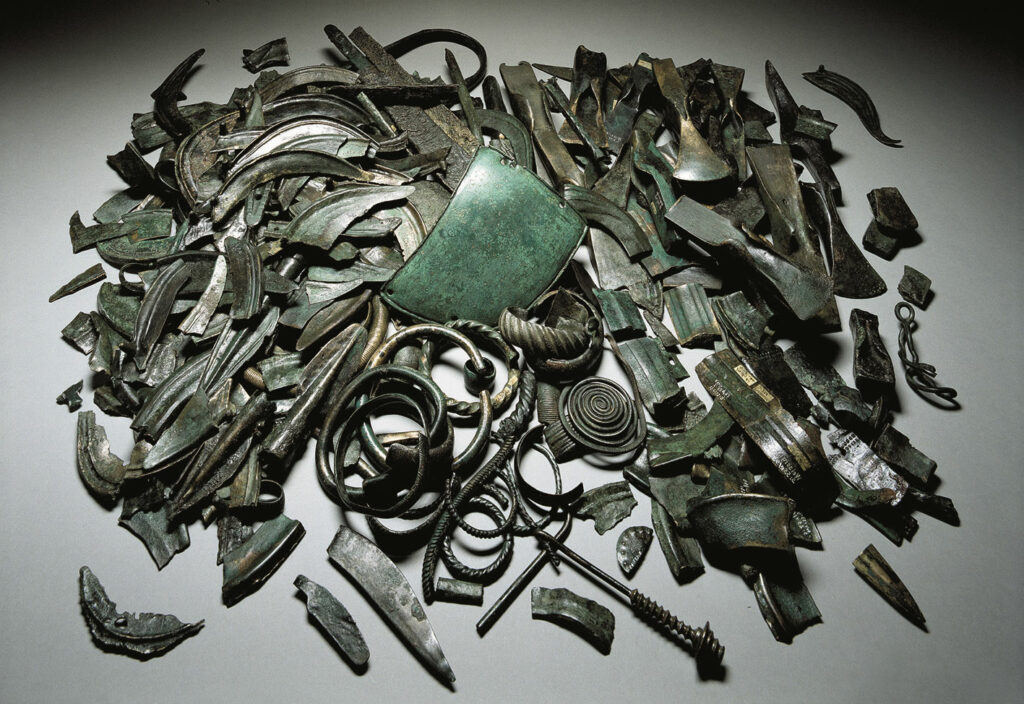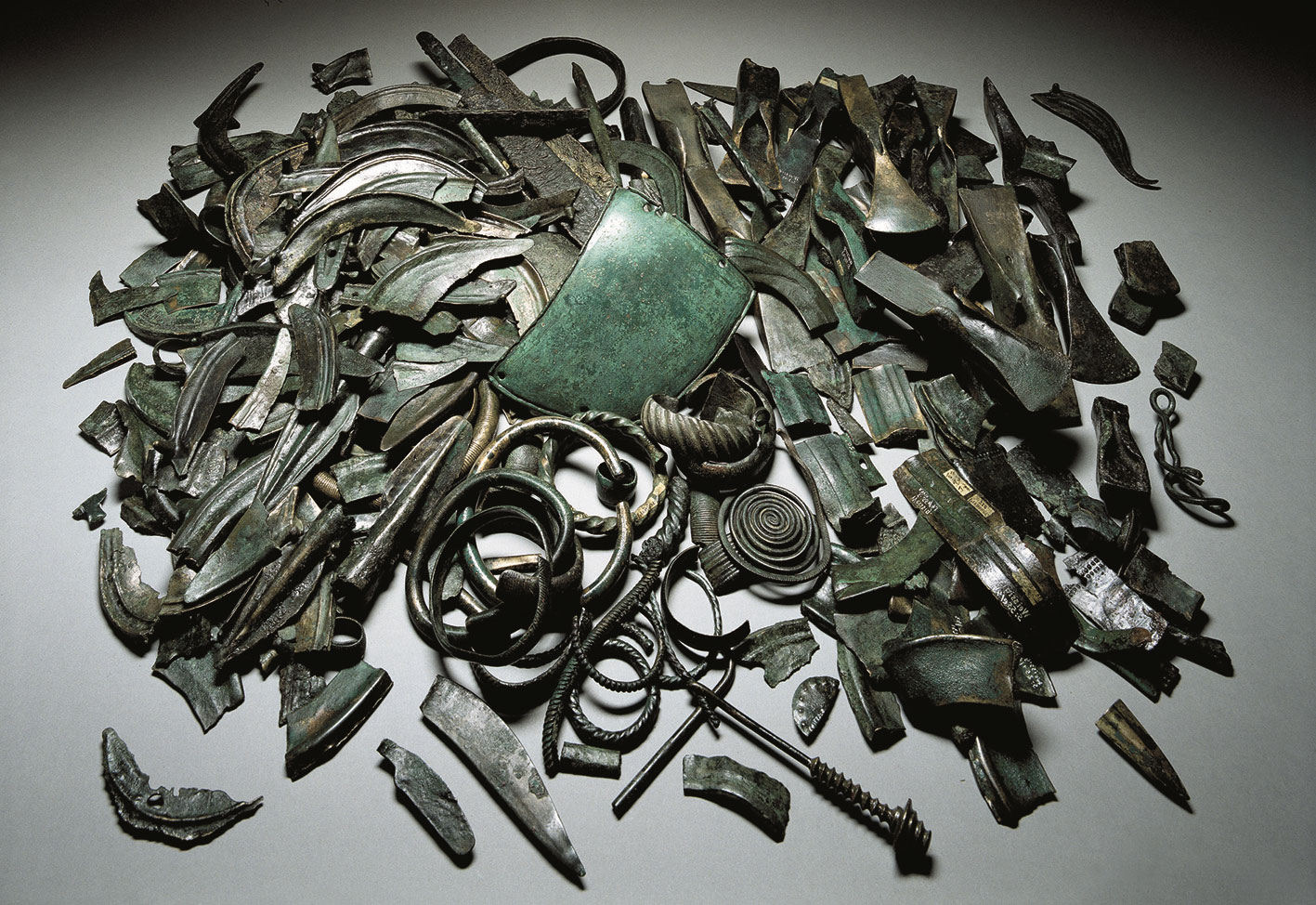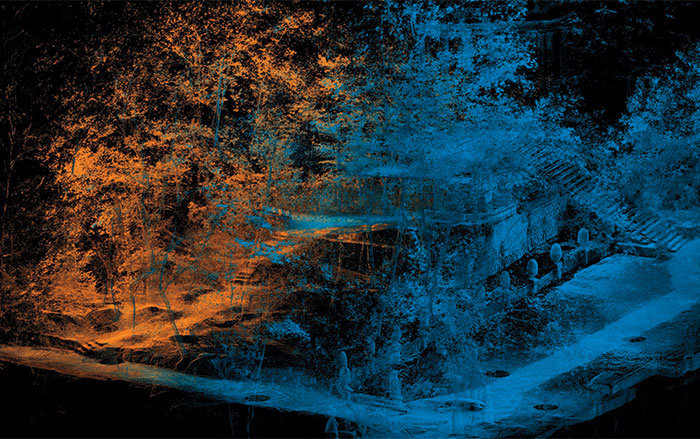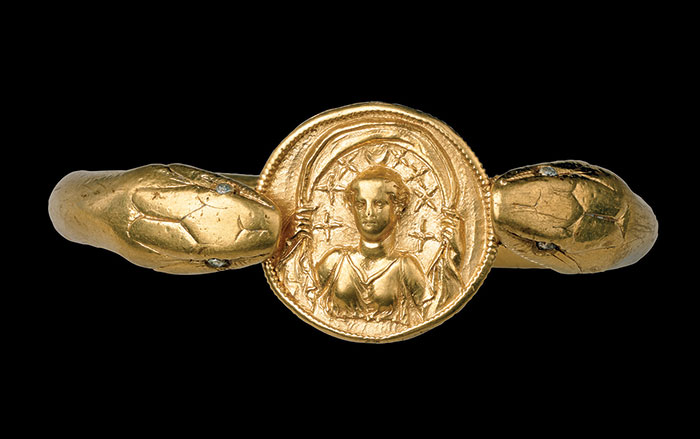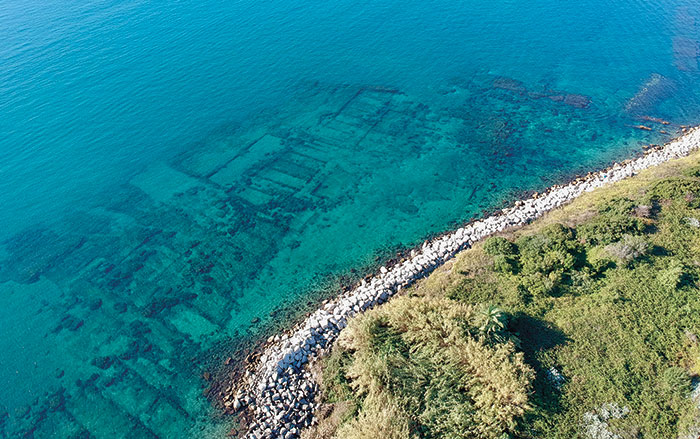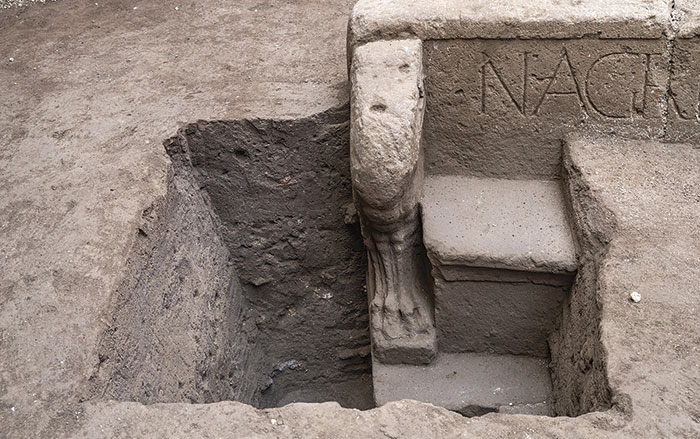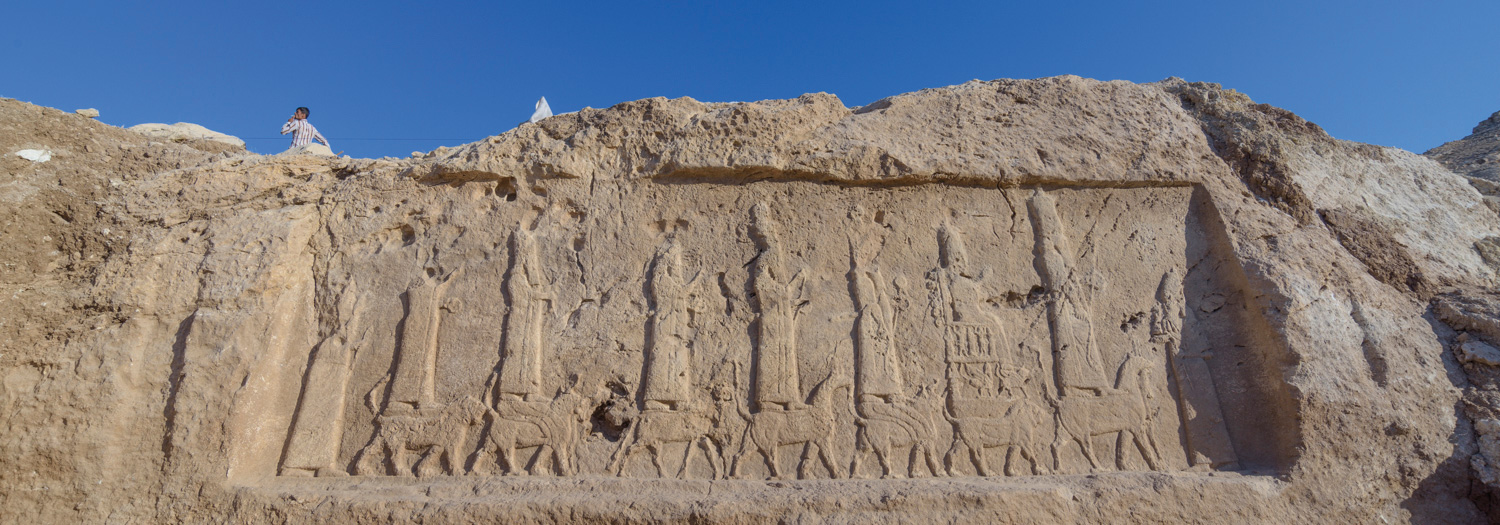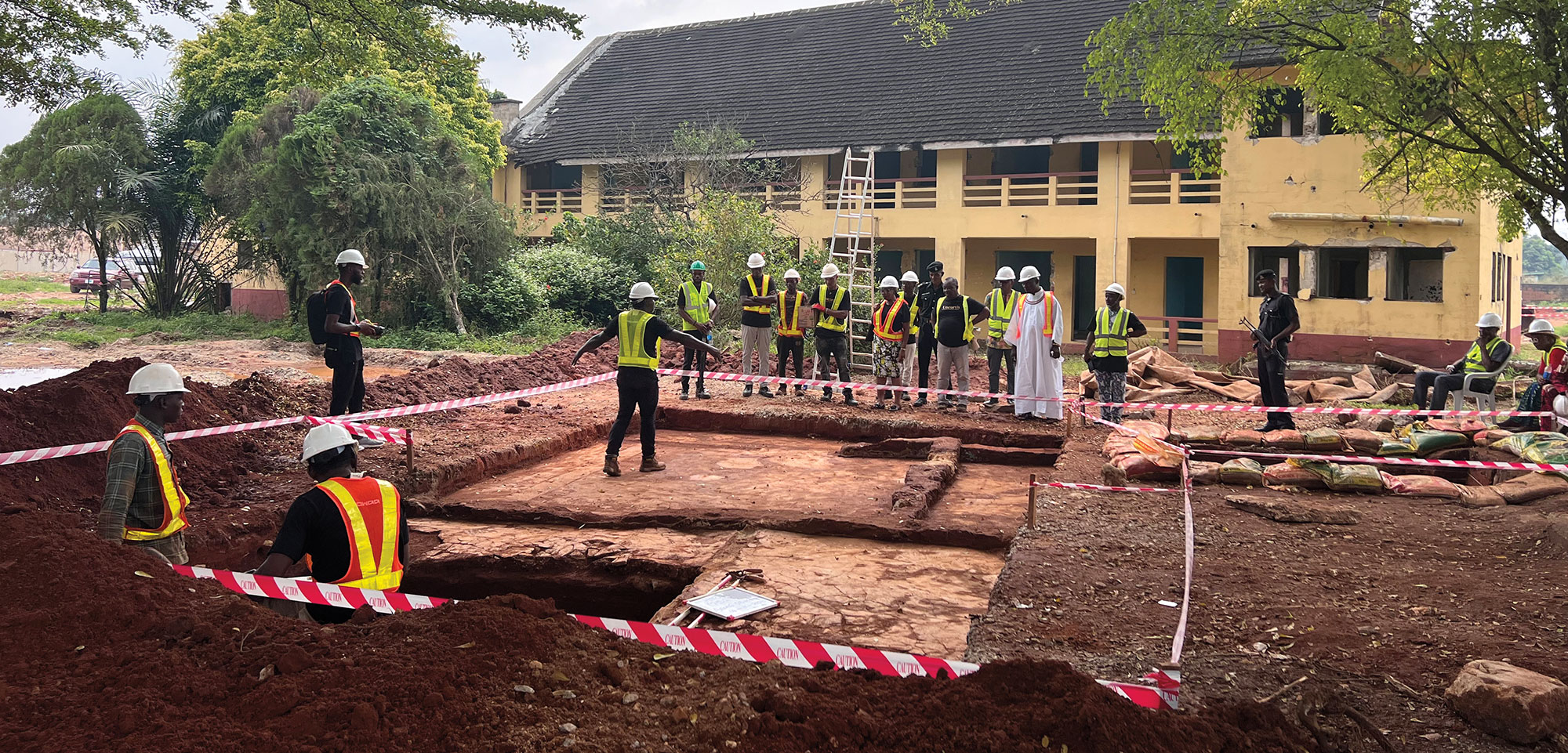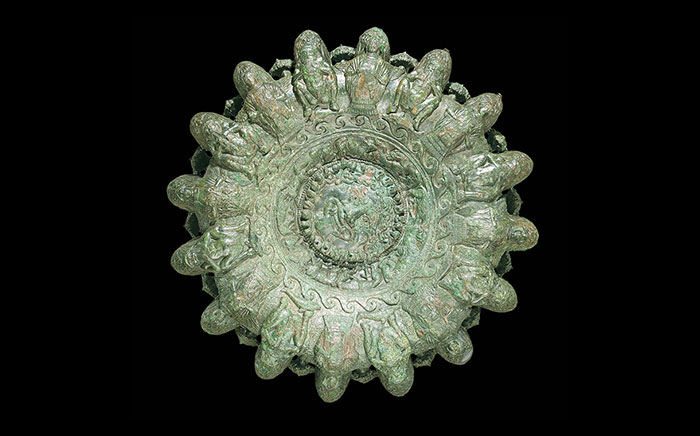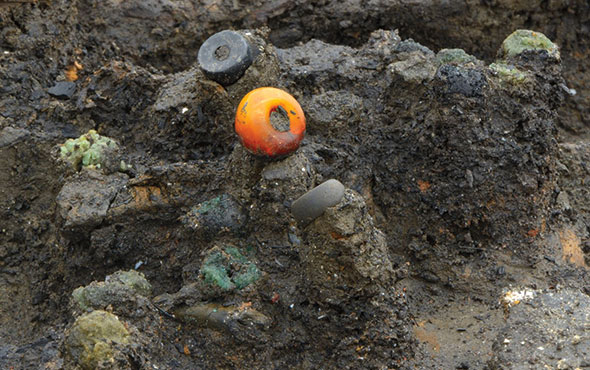GÖTTINGEN, GERMANY—According to a statement released by the University of Göttingen, Nicola Ialongo of the University of Göttingen and Giancarlo Lago of the University of Salento and their colleagues analyzed more than 20,000 metal objects recovered from more than 1,000 hoards unearthed in Italy, Switzerland, Austria, Slovenia, and Germany. The hoards were dated to between 2300 and 800 B.C. As part of the analysis, the researchers employed a statistical technique to determine if the hoards were made up of multiples of a unit of weight. And indeed, the study determined that beginning around 1500 B.C., metal objects across Europe were intentionally fragmented in order to produce a weight unit of about one-third of an ounce. The metal fragments, therefore, are thought to have been used as currency. Ialongo and Lago then calculated how much may have been spent daily by Europe’s prehistoric households, and found that small everyday costs made up most of the expenses, with larger expenses being rather rare. Simulations of these expenses suggest that everyone “spent” in proportion to how much they earned, much like a modern market economy. “We are used to thinking of the market economy as a product of modernity, an innovation that deeply changed people’s lives and minds as soon as it appeared,” Ialongo said. “Our results suggest that it may have always existed.” To read about a hoard of Iron Age metal objects uncovered in western Germany, go to "A Twisted Hoard."
